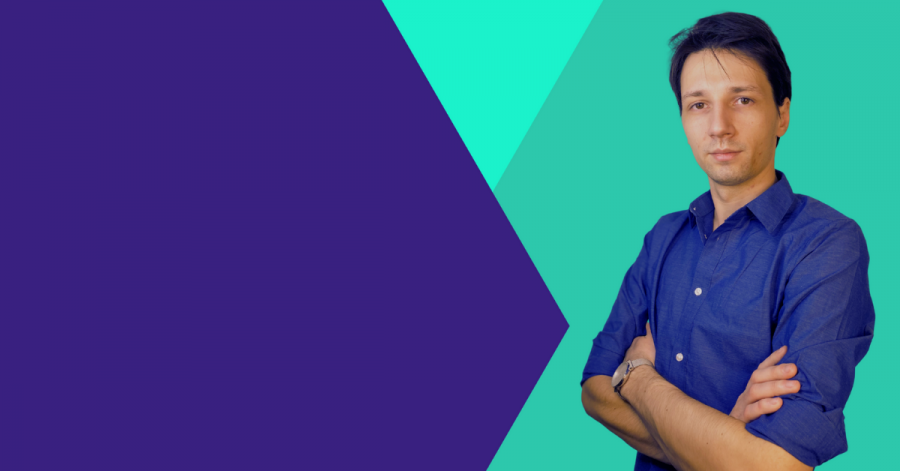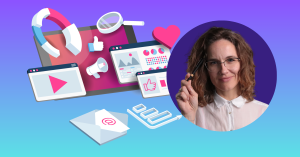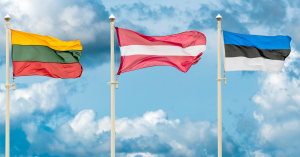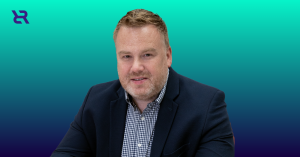Nestor is a Romanian-born HR software startup based in California, US, that aims to deliver 50% more employee performance by linking people with technology. Launched in 2018, the smart coaching tool helps organizations build their leadership-driven company culture. The software gives AI insights to managers about the performance of their team members. Around 10K+ employees are using the product worldwide.
The project is supported by Y Combinator, the American startup program known for investing in companies like Airbnb and Dropbox. In Romania, Nestor was part of the Orange Fab accelerator that ended up in an organizational-wide deployment in Orange that uses the technology to engage their team to collaborate better.
Nestor was co-founded by Raluca and Bogdan Apostol based on their previous experience in leading teams of up to fifty people at a time. Bogdan has a decade of experience in Software Engineering. Raluca, who is at the CPO seat, compliments his skills with experience in People Coaching.
The future of talent management
The startup’s name was inspired by Greek Mythology. Nestor was the legendary wise king of Pylos and his speeches are known for inspiring people to perform their responsibilities and to reveal cultural ideas. “The naming also contains <<nest>>, which translates as a place where one can develop and grow and at the same time feel protected. We’re offering a way for managers to create a work environment where every individual can be focused, meaningful, and become a better version of themselves,” shared Bogdan Apostol, Nestor CEO, and co-founder, with The Recursive.
Currently, millennials and older Gen Z members represent over 50% of the global workforce. Bogdan says that Millennials are actively looking for more feedback to help them improve their skills. He adds that this generation wants to learn new things and has high expectations from leadership development programs that do not rely on “command and control”. Future managers are encouraged to use active involvement to drive innovation in their organizations.
The Recursive met with Nestor’s co-founder, Bogdan Apostol, to talk about how they came up with their solution, their Y Combinator experience, and their plans for growth and development.
The Recursive: How did you come up with the Nestor startup concept?
Bogdan Apostol: By the end of 2018, after participating in the summer batch at Y Combinator and killing a previous product we were building that was not taking off, we started building Nestor. But we took a different approach. This time we didn’t jump in headfirst in developing the solution. Instead, we focused more on what the customer wanted. In fact, before writing the first line of code, we had over 400 discovery calls with potential customers to better understand their needs and how our product could solve them.
How is Nestor tackling the coaching niche differently than others?
The problem Nestor is tackling might be considered a niche now, but it will soon become the norm for most organizations. Organizations are just now realizing the importance of having meaningful employee data, that is not only collected but that is made easily understandable and actionable.
Before Nestor, this data resided in multiple isolated channels or processes. That made it extremely difficult for organizations to collect, synchronize, and draw unified data-driven conclusions. We are building the first Culture OS for organizations, where these previously isolated data streams are streamlined through a holistic approach to Culture, coaching practices, and modern performance management processes.
How are you using Nestor to develop your own company’s culture?
Using your product and interacting with the application as an end-user, is in my opinion one of the best ways to make our pain points get closer to the customer’s pain points. We use our product in every aspect of our business, from the hiring process and coaching our employees, to setting business and individual goals and continuously getting the pulse of the organization.
How can technology help create better leaders and stronger organizations?
It creates the opportunity for a shared learning experience that can effectively improve future efforts and outcomes in terms of decision-making and people management. At the core of each organization are the employees, and they need their leaders to always know what they are working on and to coach them towards excellence. The purpose of using technology in leadership is not to replace it, but rather create a streamlined leadership process that blends human qualities throughout the workforce in a single resource, focused on what matters most for them and the organization alike.
What made you apply to the Y Combinator?
The most important motivator for us was access to knowledge and mentorship from the partners at Y Combinator, most of them former successful startup founders themselves with vast experience. Second of all, access to an invaluable Y Combinator alumni network, where you can share experiences and learn from each other. This is extremely valuable, especially in the early stages of any company. The location also played an important role in our decision to apply to Y Combinator, as at that time, during the batch, you were required to be based in the Bay Area, in California. We were fortunate enough to be accepted in the Summer 2018 batch, and Y Combinator was for us a turning point in building our company.
What do you think made your application stand out?
Though you never actually know what stood out in the application, I guess that we managed to depict a clear vision and a deep understanding of the market we are in. One of our strong points was showing our team cohesion and the previous experience we had together as founding members.
We applied several times in a row before being accepted in the 2018 Summer batch, and I think resilience and showing progress from one application to the next one, also played an important role. We would focus each time we submitted a new application on clearly explaining what we learned since the last time we applied, what went well or whatnot, and the metrics we were tracking. We were pre-revenue at that time, so revenue was surely not a deciding factor.
How did the Y Combinator help? Would Nestor be in a different spot if it weren’t for this opportunity?
Y Combinator played an important role in the development of Nestor, and it changed the way we, as a company, think and execute. The program itself is an intense three months, but the value you get out of it extends much more than those months during the batch, through continuous access to mentors and the alumni network.
It helped us focus on a better understanding of the business we are in, the US market, and executing fast iterations of product development, delivery to clients, measuring and getting feedback, and painting the way forward.
What stuck with us even today is actually in their motto “Make Something People Want”. We continuously listen to our customers, spend time understanding their needs and act on feedback. At the end of the day, we offer a valuable product not only to the buyer but to each end user in the organization.
What are your developing plans for 2021?
The word that best describes our focus for this year is growth, growth in terms of the team, product features, and client base. Every year we are consolidating our vision and mission by developing new software capabilities to support the modern needs of the continuously changing workforce and market demands. We invest in Research & Development, to facilitate the development of new patterns that provide actionable advice from the collected people’s data. Expanding our team by hiring the right people in key roles such as engineering, customer success, growth, and sales, is essential to sustaining our fast growth.
What is your involvement with the Romania ecosystem?
We are big supporters of the Romanian startup ecosystem, and I think there is a lot of space for startups to grow in Eastern Europe. We’re always happy to share our experience with the local community and are helping several local accelerators with mentoring their batches.
Since 2019, besides the US market, Nestor is also present in the European market and has clients in both regions from industries such as Finance, Healthcare, Telecommunications, IT Services, Retail, Law Practice, and Real Estate.
Though remote first, we have a software development team located in Romania. There is a great talent pool, with extremely gifted people, and for us, as Romanian founders, it just made perfect sense to hire there. We will soon be hiring also in other positions besides development, so keep a close eye on our job openings.







